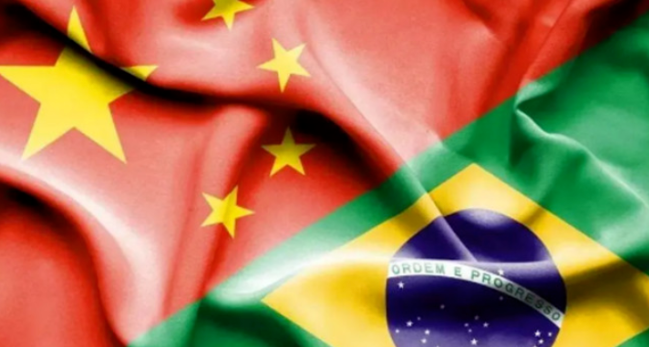- September 25, 2024
- Frico Tire
Do Chinese tires still have export advantages?
In recent years, the global tire industry has seen significant shifts, with Chinese tires increasingly coming under scrutiny and facing various trade barriers. From anti-dumping duties to increased tariffs and regulatory hurdles, Chinese tires are encountering a complex landscape of international trade challenges. This article delves into the current state of the international tire market, exploring whether Chinese tires still hold export advantages amid growing resistance and evolving trade policies.
1. Rising Trade Barriers
South Africa’s Anti-Circumvention Investigation
On September 20, 2024, South Africa’s International Trade Administration Commission (ITAC) launched an anti-circumvention investigation targeting new inflatable radial tires exported from China through Cambodia, Thailand, and Vietnam. This move aims to address concerns that these countries are acting as intermediaries to circumvent anti-dumping duties imposed on Chinese tires. This investigation highlights the increasing vigilance of countries like South Africa in scrutinizing the origins of tire imports and enforcing trade regulations.

Brazil’s Increased Tariffs
Brazil recently approved a significant tariff hike for passenger car tires, raising the import duty from 16% to 25% as of September 18, 2024. The Brazilian tire manufacturing sector has advocated for a rise in import tariffs for commercial vehicle tires from 16% to 35%, citing the negative impact of low-priced foreign products on the domestic industry. With Brazilian tire prices reportedly 70% lower than the international average, this tariff adjustment reflects a broader trend of protecting local industries from international competition.
Global Resistance Against Chinese Tires
Chinese tires have faced global resistance due to their competitive pricing, which many perceive as unfairly undercutting local markets. Countries worldwide have implemented anti-dumping and countervailing duties against Chinese tires. For example:
- United Kingdom: On August 27, 2024, the UK Trade Remedies Authority (TRA) proposed higher tariffs on Chinese truck and bus tires to protect the domestic tire retreading industry from cheap imports. The TRA’s preliminary findings indicate that tariffs on some Chinese commercial tires could exceed 1,000 RMB per tire.
- United States: On August 8, 2024, the US International Trade Commission voted to continue imposing anti-dumping and countervailing duties on Chinese truck and bus tires. These duties, initially set between 21% and 63.3% for anti-subsidy and 9% to 22.6% for anti-dumping, will remain until the next review in 2029.
- India: On July 19, 2024, India’s Ministry of Finance decided to extend the countervailing duty on Chinese truck and bus tires for another five years, maintaining a rate of 17.57% on CIF values.
- Thailand’s Impact and US Tariffs
China’s strategy to mitigate trade barriers by establishing tire manufacturing bases in Thailand has faced backlash. With increased tire exports from Thailand to the US, the US has initiated annual reviews and live hearings on anti-dumping petitions related to Thai and Korean tires. The US Steel Workers Union’s petition, alleging a 47.8% dumping margin for Thai tires, underscores the intensifying scrutiny on regional production shifts.
2. The Emergence of Global Trade Policies
EU’s Anti-Subsidy Duties on Electric Vehicles
In addition to tire-specific measures, broader trade policies affect Chinese manufacturing. On July 4, 2024, the European Commission imposed provisional anti-subsidy duties on Chinese electric vehicles (EVs), with varying rates for different manufacturers. This move reflects the EU’s growing concern over competitive pricing from Chinese producers and signals potential future challenges for other Chinese exports.
China’s Response and Strategic Adjustments
China’s tire industry, once dominant due to low pricing, faces increased resistance globally. To counteract these barriers, Chinese tire manufacturers are focusing on improving quality, investing in high-end technology, and enhancing brand reputation. Companies are also diversifying their manufacturing locations to mitigate the impact of tariffs and trade restrictions.
Domestic vs. International Market Dynamics
The rapid rise of Chinese tire brands such as Triangle, Linglong, and Double Coin illustrates the sector’s shift from low-cost to high-quality products. Despite the resistance, these brands are making strides in the high-end market, competing effectively against established international brands. The emphasis is shifting towards innovation, quality, and brand strength, challenging the perception of Chinese tires as merely low-cost options.

3. Chinese Tire Manufacturers Future Outlook
Strategic Adaptations for Continued Success
For Chinese tire manufacturers to maintain their export advantages, they must adapt to the evolving global trade environment. This includes:
- Enhancing Product Quality:Investing in advanced technology and quality control to meet international standards.
- Building Strong Brands:Focusing on brand development and market positioning to differentiate from competitors.
- Navigating Trade Policies:Developing strategies to manage trade barriers and leverage new market opportunities.
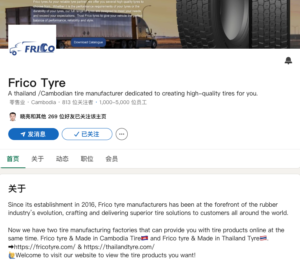
4.Frico Tire’s Role in Thailand and Cambodia
Among the Chinese tire manufacturers expanding in Southeast Asia, Frico Tire (Thailand Tire) and Frico (tire price in cambodia) have established themselves as key players. With production facilities in both countries, Frico-(tire price in cambodia) is well-positioned to serve markets that impose high tariffs on Chinese-made products. By diversifying its manufacturing locations, Frico aims to maintain competitive pricing while meeting local certification requirements.
Frico’s strategic presence in Thailand and Cambodia allows it to continue serving global markets, even as the trade environment becomes increasingly hostile toward Chinese-made tires. However, like other manufacturers, Frico must navigate the growing scrutiny from regulatory bodies, such as the US ITC and South African ITAC, to ensure its products remain competitive.
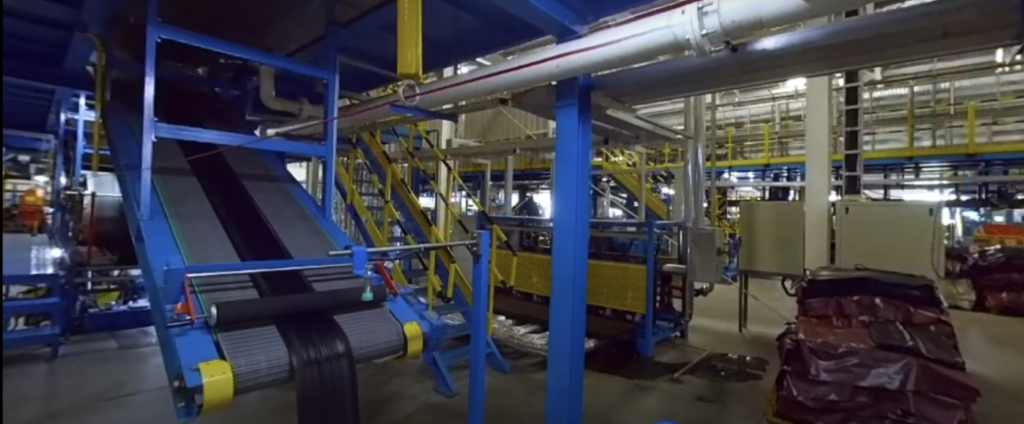
Conclusion
While Chinese tires still offer competitive advantages in terms of pricing and production capacity, the landscape is shifting due to increasing trade barriers and global resistance. The ability of Chinese tire manufacturers to adapt to these changes, enhance their product offerings, and navigate complex international trade policies will determine their continued success in the global market. As the industry evolves, the focus will increasingly be on quality, innovation, and strategic positioning rather than solely on cost advantages.
Share:
More Posts
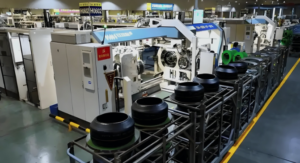
Navigating the Africa Tire Market: Chinese Manufacturers Forge New Frontiers
China tire manufacturers are accelerating investments across the Africa tire market, establishing production hubs in Morocco, Egypt, Algeria, and Angola. This strategic expansion leverages local
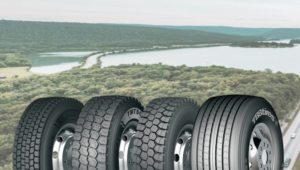
GS Tire: Premium Thailand-Made Truck Tires for Long Haul & Mining
I. Introduction: Excellence in Every Mile with GS Tire General Tire, established in 2002 in Jiangsu, is dedicated to producing high-quality tires through a strong

Thailand Tire Exports in 2025 — Growth Opportunities and Challenges
I. Introduce Since 2016, the United States has been Thailand’s largest export market for car tyres Thailand, primarily importing Thailand passenger car, pickup truck, and
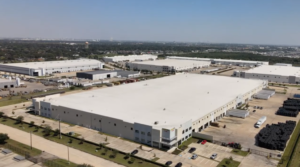
China’s Top 10 Tyre Brands: A Look at Their Global Factories
This article explores the trend of China’s top 10 tyre brands establishing global production facilities. As the largest tire manufacturer, companies like Frico, Linglong, Zhongce,
Send Us A Message
Frico thailand tyre manufacturers boasts of an illustrious history spanning back almost a century since its inception in 1929. Our experience in producing high-quality tires is second to none, having been part of the rubber industry’s evolution from a fledgling industry to the behemoth it is today. Throughout our history, Frico tire has made remarkable contributions to the world tire industry, a testament to our mission of providing our customers with best-in-class tire solutions.
Frico tire Co., Ltd. (thailand tyre manufacturers)is a well-known tire manufacturing enterprise renowned for producing high-quality tire solutions,which tyre made in thailand. Our headquarters are situated in the bustling city of Bangkok while our intelligent production plant is in Rayong Rubber Industrial Park. Our comprehensive range of products includes TBR, OTR, and more. Thanks to the strong technical research and development capabilities, we have managed to emerge as a national technical center.
Our products are known for stable and reliable quality, with a broad spectrum of specifications and models to choose from.Besides, thai tires are certified by reputable and prominent organizations such as the U.S. Department of Transportation (DOT), European Economic Center (ECE), and Brazil’s INMETRO. With our products sold in over 100 countries worldwide, we are committed to delivering exceptional products and services that keep our customers satisfied.
